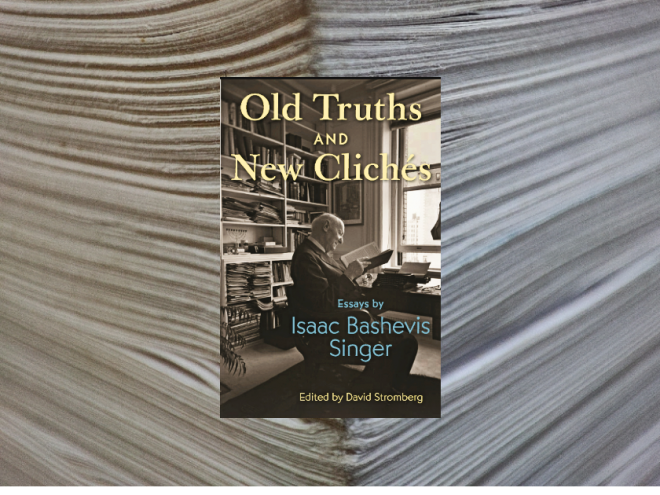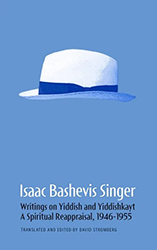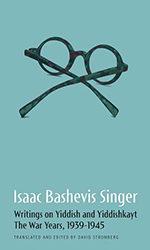“A Yiddish writer in America is an unseen entity, almost a ghost.” So begins the introduction to the new collection of essays by Isaac Bashevis Singer, compiled and edited by David Stromberg. Singer is, of course, best known as a storyteller, but this new collection aims to expose readers to Singer’s worldview through a different lens than devotees may be familiar with. Though Singer virtually defined Yiddish American literature of the twentieth century, he was, as this collection reveals, a thinker as well as a writer — and a proud one at that.
Most of the essays in the collection are previously unpublished in English, and some have previously been unpublished in any capacity. In the preface, Stromberg notes that “ … It is possible … to read these texts not quite as translations, but as original works produced through a process that included a first draft in Yiddish, translation into English, and English-language revisions made into final works … In this sense, this book is more than a collection of Singer’s translated articles. It is a cohesive work, expressed in Singer’s own voice.” Stromberg has curated this collection in service of expressing what he terms “a central element of Singer’s intellectual foundation — a testament to the spirit of his artistic vision.” For a lay reader, particularly one familiar only with Singer’s fiction, the collection reads a wide-ranging and accessible walk through Singer’s mind.
Some standouts in the collection: “Storytelling and Literature,” “The Ten Commandments and Modern Critics,” and “Yiddish, the Language of Exile.” All play to Singer’s gift for translating Yiddish culture, particularly within an American context, into something that feels urgent and even timeless. “It could be said that Hebrew succeeded and Yiddish failed, but for me Yiddish is far from being a failure,” he writes. “By discarding its foreign trappings, its worldly chaff, and preserving the vitamins and hormones that nourished the language for generations, Yiddish is again slowly becoming what it was in its beginning — a language of Jewishness, the expression of those who still view human behavior from the point of view of kosher and nonkosher, permitted and forbidden.” Understanding Yiddish as a living thing, an entity that requires nourishment, strikes at the core of Singer’s relationship to his native tongue.
The eighteen essays in this collection are very much within his established realm of expertise — but how fortunate we are that this realm is so rich and almost infinitely rewarding.
Justine Orlovsky-Schnitzler is a frequent contributor to the Jewish Women’s Archive and Lilith magazine, living and working at home in the South.





